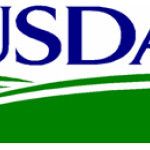- Domeniu: Government
- Number of terms: 41534
- Number of blossaries: 0
- Company Profile:
Additional peanuts that are allowed to be bought back and used like quota peanuts in the domestic edible market when there are not enough peanuts available to meet the national poundage quota. A buyback is a marketing transaction in which a grower places additional peanuts under loan at the additional loan rate and a handler simultaneously purchases such peanuts from the area marketing association for seed or other domestic use. The buyback mechanism not only provides peanuts to overcome government induced shortages, it provides a means for quota holders to make more money.
Industry:Agriculture
Fish or other sea creatures caught unintentionally during commercial fishing operations.
Industry:Agriculture
Trade or transport in coastal waters between ports within the same country. U.S. "cabotage" legislation — notably the so-called Jones Act — is designed to support the maritime industry.
Industry:Agriculture
An informal association of 15 agricultural exporting countries formed in 1986 at Cairns, Australia. During the Uruguay Round this group sought the removal of trade barriers and substantial reductions in subsidies affecting agricultural trade. These goals were in response to depressed commodity prices and reduced export earnings stemming from subsidy wars between the U.S. and the EU. The members account for a significant portion of the world's agricultural exports. The group includes major food exporters from both developed and developing countries: Argentina, Australia, Brazil, Canada, Chile, Colombia, Fiji, Indonesia, Malaysia, New Zealand, Paraguay, the Philippines, South Africa Thailand, and Uruguay. The Cairns Group was a strong coalition in the Uruguay Round of multilateral trade negotiations.
Industry:Agriculture
A contract that entitles the buyer the right, but not the obligation, to purchase an underlying futures contract at a stipulated basis or strike price at any time up to the expiration of the option. The buyer pays a premium to the seller for this contract. A call option is bought with the expectation of a rise in prices. See put option.
Industry:Agriculture
A diarrheal disease often caused by the type of bacteria known as Campylobacteria jejuni (C. jejuni) associated with poultry, raw milk, and water. There are an estimated 2.5 million cases annually in the United States with 200 to 730 deaths. Campylobacteriosis has been linked to Guillain-Barre syndrome (a disease which paralyzes limbs and breathing muscles) as well as Epstein-Barr, Cytomegalovirus, and other viruses. USDA has estimated that this disease costs the United States between $1.2 to $1.4 billion annually in medical costs, productivity losses, and residential care.
Industry:Agriculture
Refers to an action taken under Section 6(b) of the Federal Insecticide, Fungicide and Rodenticide Act (FIFRA) to cancel a pesticide registration for one or more specific uses when the Environmental Protection Agency finds the use results in unreasonable adverse effects to the environment or public health when a product is used according to widespread and commonly recognized practice, or if its labeling or other material required to be submitted does not comply with FIFRA provisions.
Industry:Agriculture
This Act is P.L. 67-146 (February 18, 1922), with a bit of exaggeration, is sometimes called the Magna Carta of Cooperation. The law was passed in response to challenges made against cooperatives using the Sherman Antitrust Act, the Clayton Antitrust Act, and the Federal Trade Commission Act. It gave "associations" of persons producing agricultural products certain exemptions from antitrust laws. The law carries the names of its sponsors, Senator Arthur Capper of Kansas and Congressman Andrew Volstead of Minnesota.
Industry:Agriculture
Products that manufacturers or processors own or contract to purchase for future delivery so as to have a predictable source of raw materials for their plants. In agriculture, the term often is used, for example, to refer to the cattle that beef packers own or contract to purchase 2 weeks or more before slaughter. Examples of such contracts include an exclusive agreement with an individual feedlot in which the price is based on market prices at time of slaughter; or a contract in which the price is specified in advance or is based on some other formula. At issue is the effect that captive supplies have on prices paid to cattle producers.
Industry:Agriculture
Retention of carbon in ways that prevent or delay it from bing emitted to the atmosphere as carbon dioxide. This may help mitigate climate change by reducing the amount in the atmosphere. Silvicultural practices that encourage rapid, long term tree growth are an example. Crop residue retention practices designed to prevent erosion and improve productivity of soil, such as conservation tillage and also retain larger amounts of carbon compared to many traditional cultivation practices.
Industry:Agriculture
